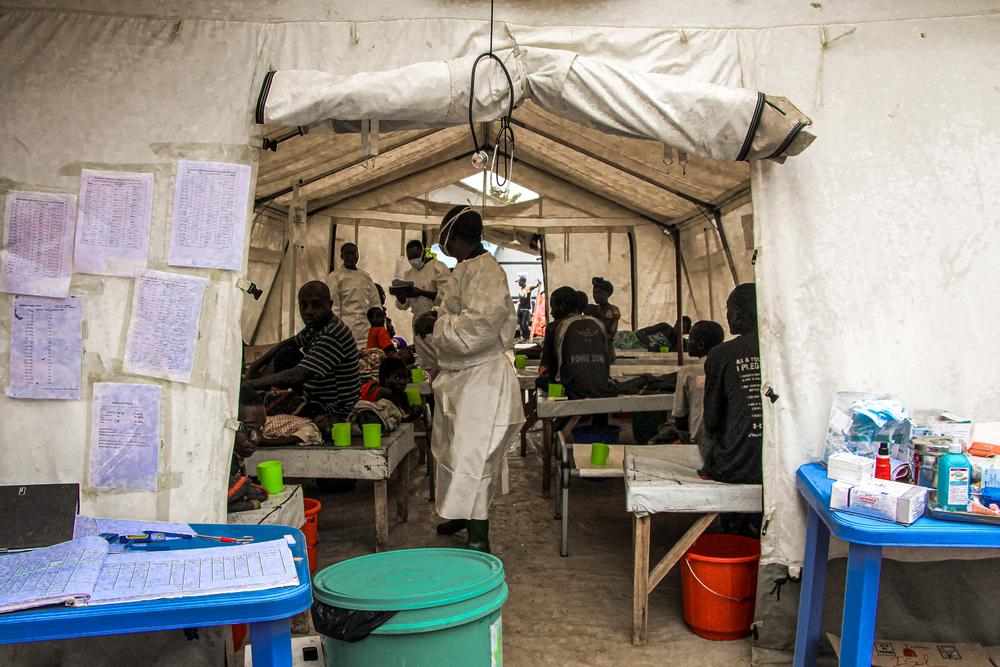In the first line of the medical response, MSF teams had to deploy substantial medical and logistical resources in just two days.
“At first, health facilities were overwhelmed by the massive influx of patients. With limited capacity, some days we had to treat more than 100 patients at the same time with just 20 beds. To prevent further contamination and reduce the spread of the disease, the teams set up 4 cholera treatment centres, as well as oral rehydration and water chlorination points for people living far away from the health centres. In just three days, nearly 400 cases were treated by the teams in the Rutshuru and Binza health zones, in support to the health authorities”, explains Romain Madjissembaye, MSF project coordinator.
Most patients come from a long way and travel dozens of kilometres through the bush to reach medical facilities. Some are already unconscious when arriving, in shock, and the medical teams have only a few hours, or even minutes, to save them. Through community-based prevention measures and increased medical support, the situation is under control and the admission rate is declining. New patients continue to arrive, and our teams remain mobilised daily to treat them.
On site, our teams have gathered positive testimonies from cured patients – illustrating the speedy recovery of this highly contagious disease, when utmost care is deployed.
For months, MSF has been the only medical actor present in the territory of Rutshuru, supporting 24 medical structures in the Rutshuru, Rwanguba, Binza, Bambo and Kibirizi health zones.
